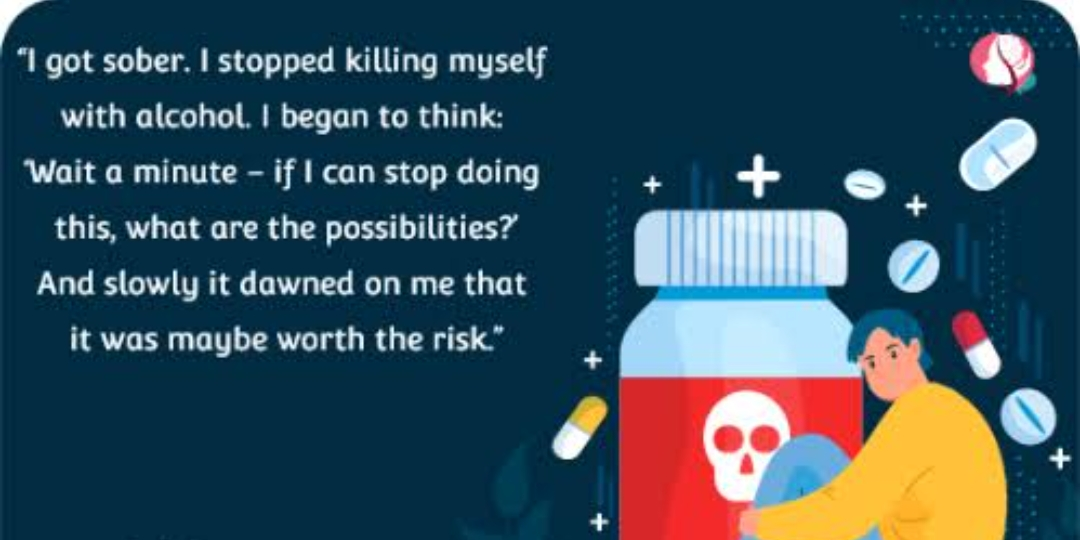+918048809459

This is your website preview.
Currently it only shows your basic business info. Start adding relevant business details such as description, images and products or services to gain your customers attention by using Boost 360 android app / iOS App / web portal.
Addiction can indeed contribute to aggressive beha...

Addiction can indeed contribute to aggressive behavior, and managing this in psychotherapy involves several strategies. Here’s an overview of how therapists might approach this: ### Understanding the Link 1. **Substance-Induced Aggression**: Certain substances can directly increase aggression. 2. **Withdrawal Symptoms**: Withdrawal from some substances can cause irritability and aggression. 3. **Underlying Issues**: Addiction often co-occurs with mental health issues (e.g., anxiety, depression) that may contribute to aggression. ### Therapeutic Strategies 1. **Cognitive-Behavioral Therapy (CBT)**: - **Identify Triggers**: Help clients recognize what triggers their aggressive behaviors. - **Cognitive Restructuring**: Challenge and change unhelpful thought patterns that lead to aggression. - **Behavioral Interventions**: Teach alternative coping strategies and responses. 2. **Anger Management**: - **Relaxation Techniques**: Breathing exercises, progressive muscle relaxation, and mindfulness to reduce physical arousal. - **Anger Journals**: Keeping a record of anger episodes to identify patterns and triggers. - **Communication Skills**: Training in assertive communication to express needs without aggression. 3. **Motivational Interviewing (MI)**: - **Enhance Motivation**: Work on clients’ motivation to change both their substance use and aggressive behaviors. - **Explore Ambivalence**: Help clients understand the pros and cons of their behaviors. 4. **Dialectical Behavior Therapy (DBT)**: - **Emotion Regulation**: Teach skills to manage intense emotions that can lead to aggression. - **Distress Tolerance**: Develop strategies to tolerate and cope with distress without resorting to aggression. - **Interpersonal Effectiveness**: Improve relationships and communication to reduce conflict. 5. **Psychoeducation**: - **Educate on Addiction and Aggression**: Help clients understand how their substance use impacts their behavior. - **Family Education**: Involve family members to support the client and reduce environmental triggers. 6. **Integrated Treatment**: - **Dual Diagnosis**: Address co-occurring mental health issues alongside addiction. - **Holistic Approaches**: Incorporate lifestyle changes, such as exercise and nutrition, to improve overall well-being. 7. **Relapse Prevention**: - **Plan for High-Risk Situations**: Develop strategies to avoid or cope with situations that might trigger both substance use and aggression. - **Support Networks**: Encourage participation in support groups and building a supportive network. ### Practical Considerations - **Safety Planning**: Develop plans to ensure safety for the client and others if aggression occurs. - **Consistency and Boundaries**: Maintain clear and consistent boundaries within the therapeutic relationship. - **Multidisciplinary Approach**: Collaborate with other healthcare providers for comprehensive care. ### Follow-Up and Monitoring - Regularly review and adjust the treatment plan based on the client’s progress and changing needs. - Continuously monitor for signs of relapse or increasing aggression, intervening early when necessary. Managing aggression in the context of addiction requires a multifaceted approach, focusing on both the underlying substance use and the behavioral manifestations. By employing these strategies, therapists can help clients achieve better emotional regulation and healthier coping mechanisms. contact us:- Arunoday counseling clinic Indore psychologist mental health Therapist psychotherapist councellor

